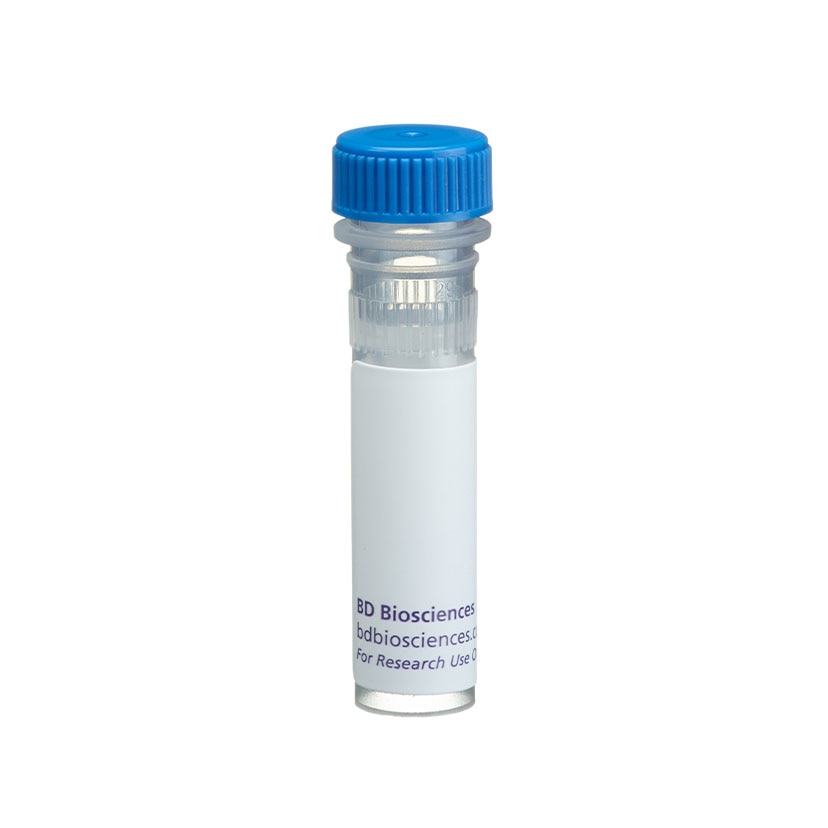-
Reagents
- Flow Cytometry Reagents
-
Western Blotting and Molecular Reagents
- Immunoassay Reagents
-
Single-Cell Multiomics Reagents
- BD® OMICS-Guard Sample Preservation Buffer
- BD® AbSeq Assay
- BD® Single-Cell Multiplexing Kit
- BD Rhapsody™ ATAC-Seq Assays
- BD Rhapsody™ Whole Transcriptome Analysis (WTA) Amplification Kit
- BD Rhapsody™ TCR/BCR Next Multiomic Assays
- BD Rhapsody™ Targeted mRNA Kits
- BD Rhapsody™ Accessory Kits
- BD® OMICS-One Protein Panels
- BD OMICS-One™ WTA Next Assay
-
Functional Assays
-
Microscopy and Imaging Reagents
-
Cell Preparation and Separation Reagents
Old Browser
This page has been recently translated and is available in French now.
Looks like you're visiting us from {countryName}.
Would you like to stay on the current location site or be switched to your location?
BD Transduction Laboratories™ Purified Mouse Anti-Phosphoserine
Clone 19/pSer (RUO)




Immunofluorescence.
Top row: Anti-Phosphoserine (Cat. No. 612546). Bottom Row: Phosphoserine/threonine (Cat. No. 612548). Left panels: untreated A431 cells control, Right panels: A431 & CalyculinA/ Okadaic Acid (2 hour treatment).



Regulatory Status Legend
Any use of products other than the permitted use without the express written authorization of Becton, Dickinson and Company is strictly prohibited.
Preparation And Storage
Recommended Assay Procedures
Western blot: Typically, 1:2500 is a useful dilution for use in Western Blot. For specific procedures, please refer to our web site at http://www.bdbiosciences.com/pharmingen/protocols/Western_Blotting.shtml.
Product Notices
- Since applications vary, each investigator should titrate the reagent to obtain optimal results.
- Please refer to www.bdbiosciences.com/us/s/resources for technical protocols.
- Caution: Sodium azide yields highly toxic hydrazoic acid under acidic conditions. Dilute azide compounds in running water before discarding to avoid accumulation of potentially explosive deposits in plumbing.
- Source of all serum proteins is from USDA inspected abattoirs located in the United States.
Protein phosphorylation of serine and threonine residues is critical for the control of protein activity involved in various cellular events. An assortment of Ser/Thr kinases and phosphatases regulate serine and threonine phosphorylation in cell signaling pathways, such as growth factor, cytokine, chemokine, and stress response. Detection of serine and threonine phosphorylation can generally be monitored by antibodies that detect phosphoserine and phosphothreonine. Our clone 19 antibody specifically recognizes phosphoserine modifications on peptides in ELISA, while our clone 22a detects both phosphoserine and phosphothreonine modifications on peptides in ELISA. These antibodies are reported to be useful for Western blot, flow cytometry, and microscopy detection of phosphoserine and phosphothreonine levels.
Development References (3)
-
Brivanlou AH, Darnell JE Jr. Signal transduction and the control of gene expression. Science. 2002; 295(5556):813-818. (Biology). View Reference
-
Pawson T, Scott JD. Signaling through scaffold, anchoring, and adaptor proteins. Science. 1997; 278(5346):2075-2080. (Biology). View Reference
-
Yan JX, Packer NH, Gooley AA, Williams KL. Protein phosphorylation: technologies for the identification of phosphoamino acids. J Chromatogr A. 1998; 808(1-2):23-41. (Biology). View Reference
Please refer to Support Documents for Quality Certificates
Global - Refer to manufacturer's instructions for use and related User Manuals and Technical data sheets before using this products as described
Comparisons, where applicable, are made against older BD Technology, manual methods or are general performance claims. Comparisons are not made against non-BD technologies, unless otherwise noted.
For Research Use Only. Not for use in diagnostic or therapeutic procedures.